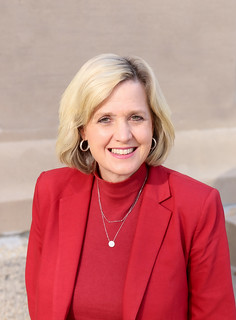Tax expert to break down new OBBBA provisions in NALC webinar
Kristine Tidgren, director of Iowa State University’s Center for Agricultural Law and Taxation, or CALT, will lead the one-hour session, which will break down key provisions of the One Big Beautiful Bill Act — OBBBA — that impact farmers, ranchers, and rural landowners.
By Ramie Parsons
National Agricultural Law Center
U of A System Division of Agriculture
Sept. 8, 2025
Fast facts:
- One Big Beautiful Bill Act introduces major tax changes for ag producers
- NALC webinar to help farmers and ranchers understand and plan for the new rules
- Free registration available online
(412 words)
Download related photo
FAYETTEVILLE, Ark. — Agricultural producers face new tax considerations as the result of recent legislation, and an upcoming National Agricultural Law Center webinar will provide critical insight into what those changes mean heading into 2026.
The free webinar, “Reviewing New OBBBA Tax Provisions Impacting Agricultural Producers,” will be held Wednesday, Sept. 17, from 11 a.m. to noon Central/noon to 1 p.m. Eastern. Registration is available online.
Kristine Tidgren, director of Iowa State University’s Center for Agricultural Law and Taxation, or CALT, will lead the one-hour session, which will break down key provisions of the One Big Beautiful Bill Act — OBBBA — that impact farmers, ranchers, and rural landowners.
“Producers are going to see some meaningful tax rule changes that will affect end-of-year decisions and planning for 2026,” Tidgren said. “This webinar is designed to provide the clarity they need to make smart, informed decisions moving forward.”
Tidgren will highlight the tax provisions introduced through OBBBA and how those provisions apply in real-world scenarios. Attendees will come away with practical planning strategies tailored for the unique financial landscape of agricultural operations.
“Kristine is one of the leading experts in agricultural taxation in the country,” said Harrison Pittman, director of the National Agricultural Law Center. “She brings an ability to translate complex legal issues into information that producers and ag professionals can use right away.”
In addition to her leadership at CALT, Tidgren teaches agricultural law at Iowa State University and contributes regularly to national tax education programs and publications. She is a licensed attorney and a sought-after speaker known for her deep understanding of the intersection between law, tax, and agriculture.
“This webinar will help producers prepare for the 2026 tax season with confidence,” Tidgren said. “We’ll walk through what’s changed, what it means, and how producers can plan ahead.”
This event is part of the NALC’s ongoing webinar series. A full archive of past webinars is available online at https://nationalaglawcenter.org/webinars.
For information about the NALC, visit nationalaglawcenter.org. The NALC is also on X, Facebook and LinkedIn.
Subscribe online to receive NALC Communications, including webinar announcements, the NALC’s Quarterly Newsletter, and The Feed.
About the National Agricultural Law Center
Created by Congress in 1987, the National Agricultural Law Center serves as the nation’s leading source of agricultural and food law research and information. The NALC works with producers, agribusinesses, state and federal policymakers, lenders, Congressional staffers, attorneys, land grant universities, students, and many others to provide objective, nonpartisan agricultural and food law research and information to the nation’s agricultural community.
The NALC is a unit of the University of Arkansas System Division of Agriculture and works in close partnership with the USDA Agricultural Research Service, National Agricultural Library.
About the Division of Agriculture
The University of Arkansas System Division of Agriculture’s mission is to strengthen agriculture, communities, and families by connecting trusted research to the adoption of best practices. Through the Agricultural Experiment Station and the Cooperative Extension Service, the Division of Agriculture conducts research and extension work within the nation’s historic land grant education system.
The Division of Agriculture is one of 20 entities within the University of Arkansas System. It has offices in all 75 counties in Arkansas and faculty on three campuses.
The University of Arkansas System Division of Agriculture is an equal opportunity institution. If you require a reasonable accommodation to participate or need materials in another format, please contact hmpittman@uark.edu as soon as possible. Dial 711 for Arkansas Relay.
# # #
Media contact:
Communications & Special Projects Coordinator
National Agricultural Law Center
nataglaw@uark.edu
